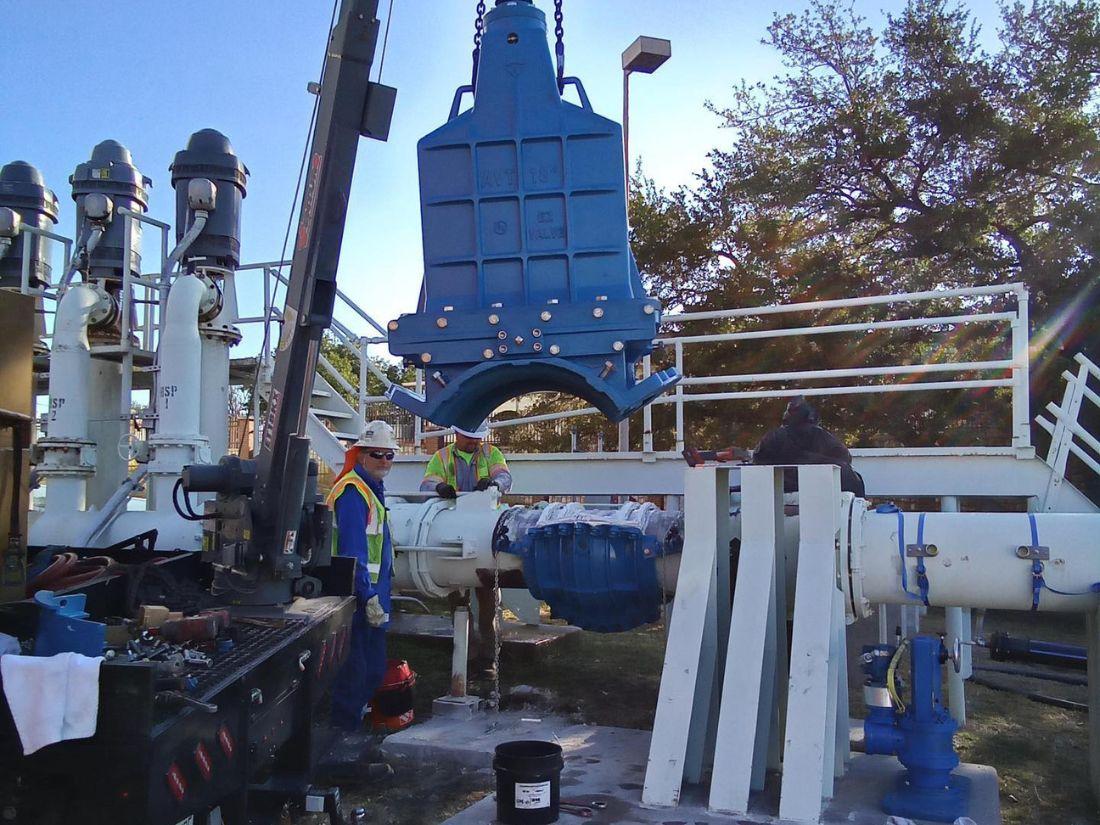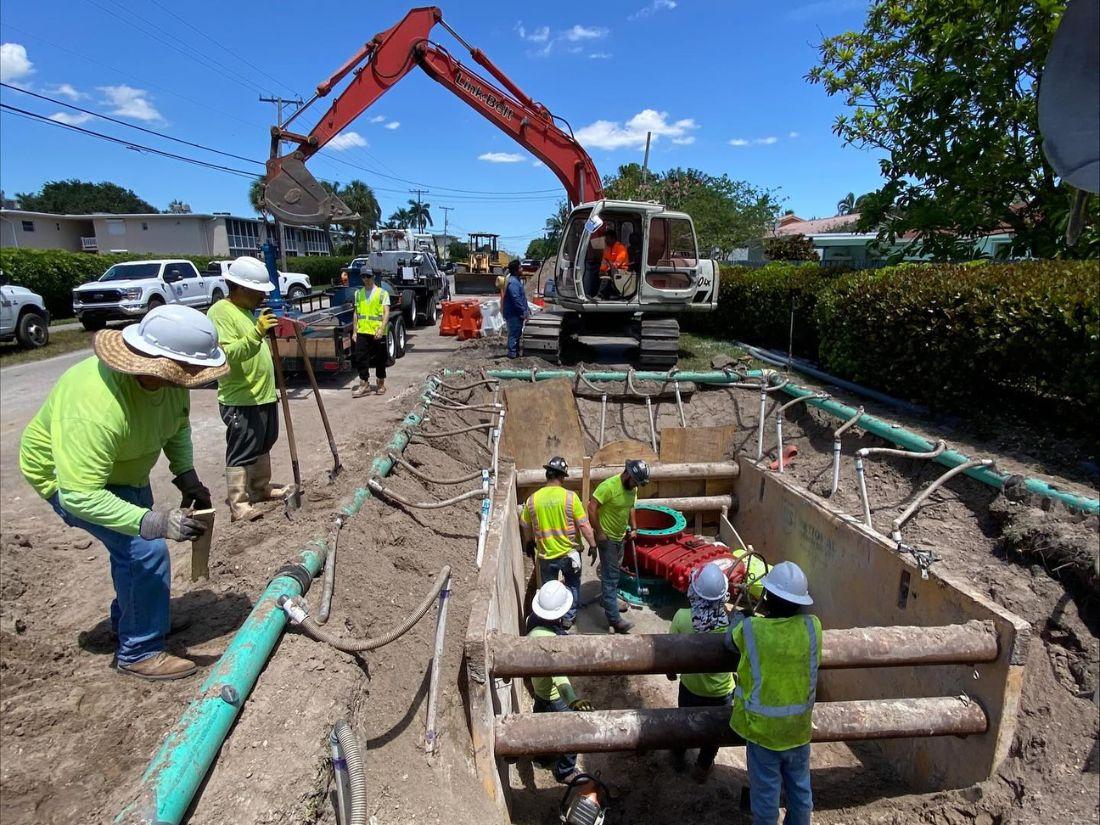Request Quote
Valve insertion services are an integral component of general pipeline maintenance. More importantly, these services are beneficial for installing new upgrades because of their advanced solutions for maintaining system integrity without halting operations. No matter what kind of upgrade you’re looking to implement, valve insertions are the ideal way to go about it.
However, there are a variety of ways to employ these services. Below, we explore five of the most common valve insertion services, so you can decide which is best for your live pipeline upgrades.
Line-stopping valve insertion is one of the most popular methods utilized for live upgrades. This approach involves isolating specific segments of the pipeline while maintaining flow in the remaining sections. It is especially common in scenarios where service interruptions could be costly or impractical.
The heart of this technique lies in the use of specialized tools to temporarily stop flow within a designated portion of a pipeline. After isolating the area, technicians install the valve and ensure its positioning and functionality meet system requirements. Once complete, they restore the flow without disrupting operations either upstream or downstream.
Line-stopping valve insertions are helpful for emergency repairs, system expansions, or integrating additional infrastructure such as branch lines. This technique is particularly valuable in municipal water systems and industrial pipelines where constant service delivery is nonnegotiable.
Tapping valve insertion enables new connections to an existing pipeline while maintaining its operational integrity. This process involves tapping into a live pipe at a specific location, installing a valve, and enabling functionality for the newly integrated section.
Advanced tools such as tapping machines ensure precision in creating openings within live pipelines. Due to their complexity, it’s a method best left to the professionals. Once the new valve is in place, the section can handle tasks such as directing flow into additional pipelines or controlling flow rate at specific points.
Common use cases for tapping valve insertions include the addition of new service lines in urban expansion projects or the introduction of supplementary infrastructure, such as filtration systems for fluids. The method’s precision makes it well-suited for high-density networks like gas and water distribution systems.

Inline valve insertion focuses on placing valves directly into an operational pipeline to add control points or enhance overall system management. Unlike tapping insertions, the process requires the creation of pipeline access points for valve installation. While more involved, this method delivers long-term benefits in terms of functionality and control.
Specialized equipment, such as inline insertion machines, ensures that installers put in the valve without disturbing the flow of materials through the pipeline. This service is ideal for situations requiring enhanced system segmentation or precision shut-off capabilities.
Inline valve insertions are commonly employed in petrochemical operations, natural gas pipelines, and wastewater management systems. These applications rely on precise flow controls, making this insertion method particularly advantageous for those who decide to go with it.
Under-pressure valve insertion methods cater to scenarios where maintaining pressure in the pipeline is crucial. The technique involves installing a valve to control or direct flow while maintaining existing pipeline pressure levels.
Using high-performance machinery, technicians integrate valves under pressurized conditions without compromising system integrity or causing service disruptions. While these high-pressure pipeline systems aren’t always the most common, depending on your industry, when they are a factor, this method is particularly effective.
Under-pressure valve insertion services are common in the energy sector, particularly in oil and gas pipelines. They are also effective for the types of systems that require uninterrupted water delivery to residents and businesses.
Hot tapping is another valve insertion service that allows for system modifications, including valve installations, without service interruptions. Unlike traditional tapping, which involves a temporary flow stop or pipeline isolation, hot tapping ensures that materials continue to flow through the pipeline as modifications occur.
This advanced method combines the use of cutting-edge equipment and state-of-the-art sealing technology to ensure tight, durable connections when integrating valves. Precision engineers monitor each hot tapping operation to guarantee the newly installed valve operates seamlessly with the existing infrastructure.
Hot tapping and valve installations are frequently used in industrial facilities that handle chemical processing, food and beverage production, and liquid transportation pipelines. It’s also a reliable solution for high-demand public utilities needing real-time infrastructural updates.

As you can see, each valve insertion method plays a unique role in live pipeline upgrades, with specific advantages tailored to different operational needs. Whether it’s ensuring uninterrupted gas flow in energy pipelines or upgrading water systems, choosing the valve insertion technique depends on pipe conditions, operational priorities, and the type of service.
With innovations in valve insertion technology, businesses and organizations can benefit from advanced solutions that prioritize efficiency, safety, and performance, even under some of the most challenging operational conditions. By leveraging the appropriate insertion method, organizations can maintain pipeline functionality while optimizing infrastructure for future industry demands.
Knowing the differences between the various methods is only the first step in the process. Now, you need to find a company that can perform them for you. This is where we come in to help. Rangeline provides a variety of valve insertion services. No matter what your specific needs are, our team will be able to help you achieve your goals with ease.